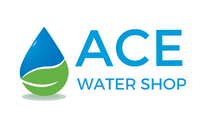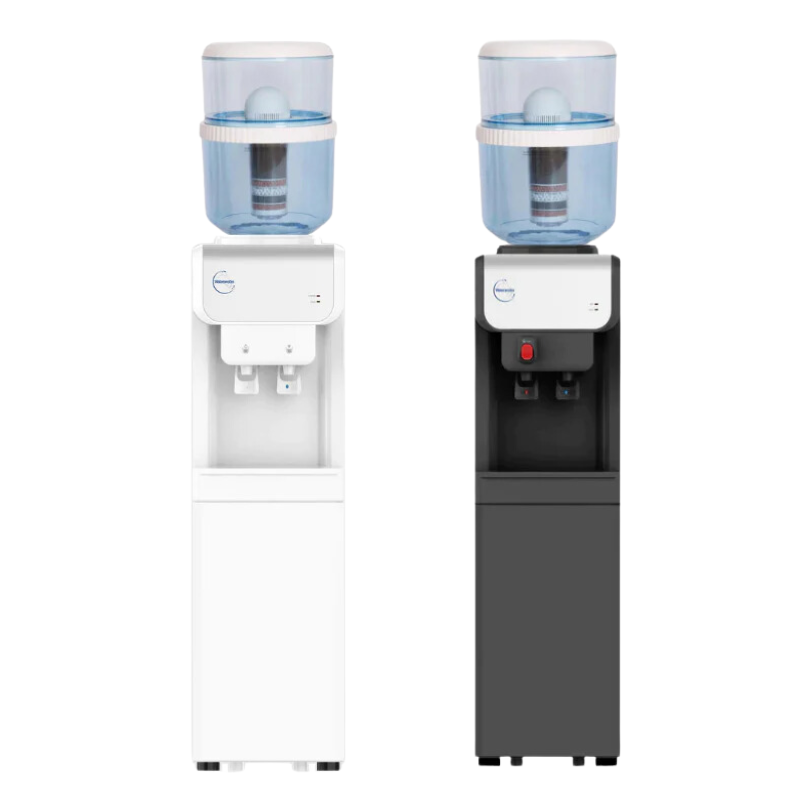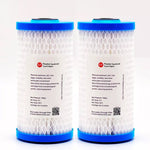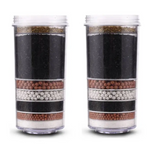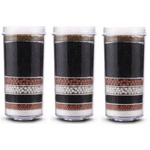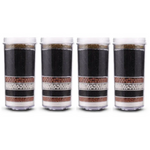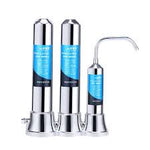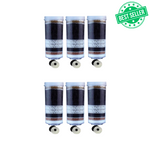You have no items in your shopping cart.
Anyone looking for a safe and effective technique to remove hard minerals from their home's water supply has most likely come across activated carbon and charcoal water filters - but which is better? Is it better to have a carbon filter or a charcoal water filter system in your house?
The first step in your quest should be to learn about activated carbon and charcoal, as well as why they're popular for water filtration.
CHARCOAL
We can make charcoal by burning organic material – most commonly wood – in the absence of oxygen. Pyrosis is the name for this procedure. We usually burn wood at temperatures ranging from 840 to 950 degrees Fahrenheit. The kiln's vents are then closed, removing oxygen and allowing the leftovers to char. The resulting mixture cools after burning the wood.
Charcoal is the hard, porous substance that results. Charcoal is a carbon-rich material that you can use for various purposes, including cooking, heating, and filtering.
ACTIVATED CARBON
Although activated carbon and charcoal have a lot in common, there are some significant distinctions between the two.
Companies manufacture activated carbon from various materials, including wood, nutshells, peat, coconut husks, coal, lignite, coir, or petroleum pitch. There are two techniques to complete physical activation. Experts prepare it in one of two ways:
- The first is to use pyrolization, which is the same method used to make charcoal. The second method is oxidation, which entails heating the carbon to high temperatures, typically between 600 and 1200 degrees Fahrenheit, and exposing it to oxygen or steam.
- Chemical activation is the process of impregnating carbon with chemicals. Sodium hydroxide, sodium chloride, potassium hydroxide, phosphoric acid, and zinc chloride are common options. Many producers prefer this process since they can do it at temperatures lower than the process physical activation and faster.
DIFFERENCE BETWEEN ACTIVATED CARBON AND CHARCOAL WATER FILTER SYSTEM
The fundamental difference between activated carbon and a charcoal water filter is in the filtering materials themselves. Both are porous, hard materials that trap pollutants. What are the differences between them?
Since carbon is the name for an element, charcoal and carbon are not interchangeable (periodic symbol C, atomic number 6). Unbreakable chemical substances into smaller constituent pieces are elements. After making charcoal, it has a very high carbon content, containing some hydrogen and oxygen. Carbon is a crucial element because it bonds with various other factors to generate more complicated molecules. Carbon dioxide, which is present in the earth's atmosphere, is one example.
VOCs (volatile organic compounds) are emitted by household paints, preservatives, and aerosol sprays, and activated carbon and activated charcoal are very porous materials that attract and eliminate organic chemicals and gasses. Activated charcoal and activated carbon are interchangeable terms because when people speak of activated carbon, they refer to something that might also be similar to activated charcoal. These terms are interchangeable.
It's crucial to remember that you can frequently use the phrases activated carbon and activated charcoal synonymously. They share a lot of similarities. However, there's some evidence that activated carbon is a better option.
Activated Carbon
Activated carbon is generally purer and of a higher grade than activated charcoal. You can use activated charcoal as a filter, and it is far better than not filtering water at all.
However, when you pair activated carbon with three other filtration technologies, such as in our Guardian Water Services water refiner, the purity and effectiveness of activated carbon provide the best possible protection for your family.
Because of its high surface area, activated carbon is effective. Let's look at an example to see how much surface area a small bit of activated carbon can have.
One gram of activated carbon, for example. It would be small, with a surface area of around 500 meters squared — about a tenth of the size of a typical football field. The porous material allows water to travel through while trapping hazardous, hard substances like iron on the surface.
Activated carbon water filters soften water, minimize soap usage, and even enhance the appearance of your hair and skin.
Water filters made of activated charcoal can be helpful. Still, a high-quality activated carbon filter is a better option for providing your family with the safe, high-quality water they deserve.
FINAL THOUGHTS: Activated Carbon and Charcoal Water Filter System
Activated carbon and activated charcoal water filter system are two terms you can use interchangeably. Many folks are perplexed as to how they vary. The truth is that they're both interchangeable phrases that refer to the same thing.
We now know that charcoal is made by slowly burning wood (or other organic things). We also know that carbon is an essential component and that activated charcoal and activated carbon are the same. Both will effectively remove odors from our homes.
